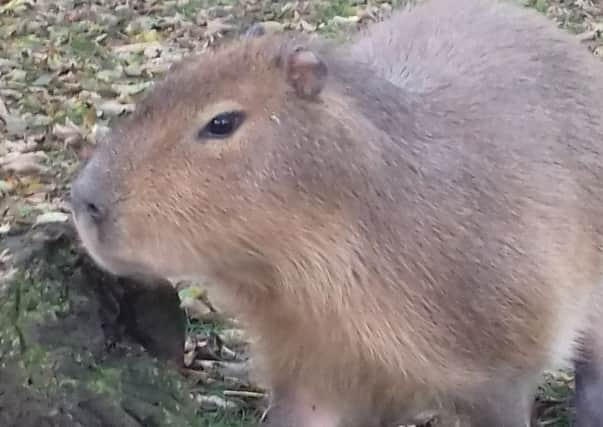Flamingo Land capybara celebrates birthday with her friends


Capybaras are the largest rodent and look like giant guinea pigs which they are closely related to.
A fully grown capybara can grow to 1.5 feet tall. They are native to Central and Southern America where they can be found along lakesides and river banks. Because of the high temperatures where they live, they love to spend most of their time in water, whether it be ponds, big lakes or rivers.
Advertisement
Hide AdAdvertisement
Hide AdThey have webbed feet, this makes them great swimmers. Their eyes, ears and nose all sit at the top of their heads, this helps them submerge most of their bodies underwater like hippos do. They can completely submerge underwater for up to five minutes while staying completely aware of their surroundings. This is done to hide from predators such as jaguars, anacondas, pumas and occasionally ocelots.
Capybaras are also hunted by humans for their meat and fur, they mate only in the water, and have a gestation period of around five months before giving birth to four or five babies once a year.
After a few days the baby capybaras join the group and are communally nursed by all females in the group. They tend to graze on grass and aquatic plants during the cooler parts of the day and typically consume three to five kilogrammes of food per day.
A capybara can live to between eight and ten years in the wild and around twelve years in captivity. Capybara are currently classed as at least concern conservation status according to the International Union for Conservation of Nature (IUCN) red list. There has previously been bans and restrictions on hunting capybara due to dwindling numbers in the wild but these have since stabilised.
Fun Facts: Capybaras teeth never stop growing so they must chew on food and trees to keep their teeth at a reasonable size in the wild.